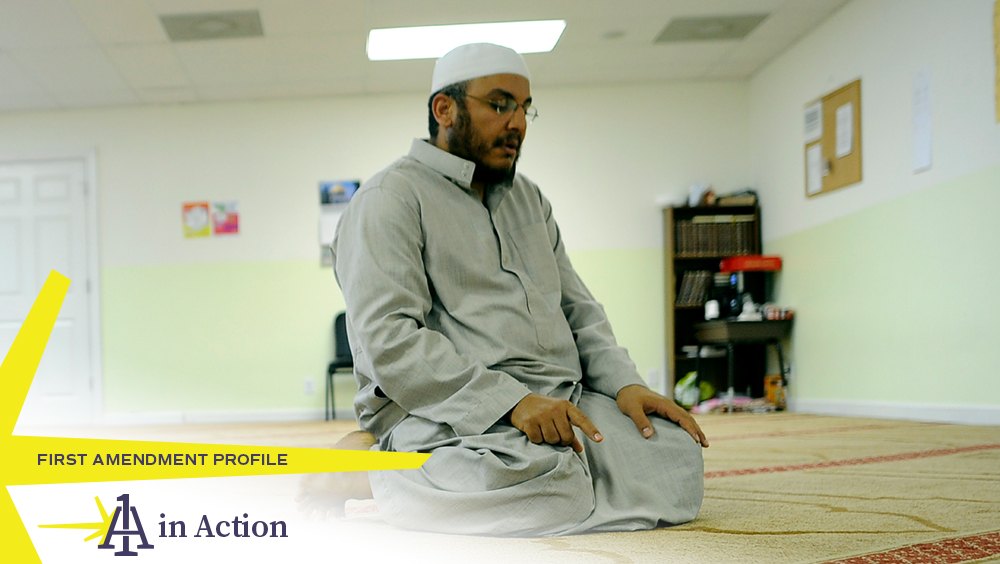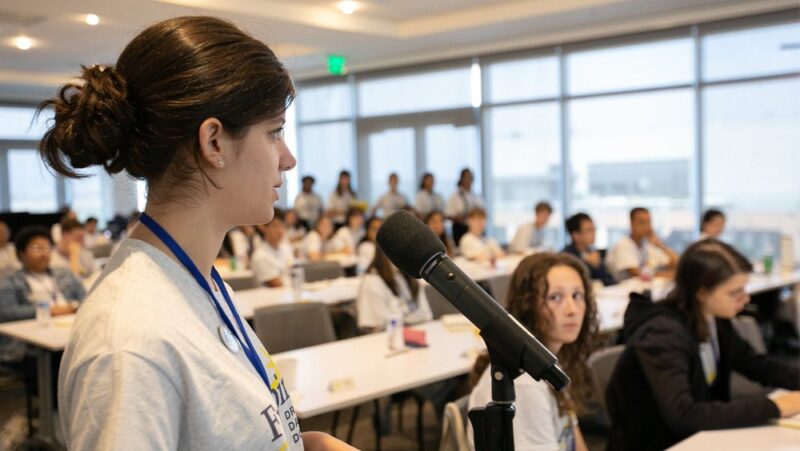1A in Action: Imam Ossama Bahloul and Fighting for the Right to Worship

Imam Ossama Bahloul wanted the growing Muslim community he led to have a bigger place to gather and worship.
As the spiritual leader of the Islamic Center of Murfreesboro, Tennessee, he knew the First Amendment protected his community’s right to build a new mosque. They acquired the needed land in November 2009, but others sued to stop construction.
Editor's note: This profile is part of an ongoing series, 1A in Action, which highlights individuals who fought for their -- and other people's -- First Amendment freedoms.
What’s at stake:
The First Amendment means the government can’t prevent you from practicing your religion or force you to believe or practice any faith. The Islamic community members that Bahloul led wanted to do just that: practice their religion.
What happened:
Even though permits of this type are usually approved by county officials without any issues, public outcry, including protests, vandalism, arson and multiple lawsuits, resulted in a judge agreeing to give the project more scrutiny than other groups would receive. That caught the attention of the U.S. Justice Department, which intervened on the mosque's behalf.
Eventually a federal judge allowed the project to move forward, but some residents still tried to stop it. A man pleaded guilty to threatening to blow up the mosque.
In 2014, the U.S. Supreme Court declined to intervene. That meant Bahloul and his community could open the new center so they could freely gather and worship.
What Imam Ossama Bahloul says:
“I always believed that the Department of Justice was not supporting us, but they were supporting the Constitution,” Bahloul says. “We always believed that the Constitution was on our side.”
Looking back, Bahloul says that he and his fellow Muslims in Murfreesboro were “overwhelmed” with the legal cases involved in building their community center and mosque. But, he says, "The light at the end of the tunnel was the First Amendment.”
Why it matters to you:
Your freedom to practice a religion, or to choose not to, is upheld every time someone else’s right to religious freedom is supported, too.
Imam Ossama Bahloul’s inspiration:
“The freedom of religion has to be for all. Taking away the freedom for anyone is hurting our freedom collectively.” – Ossama Bahloul, February 2024
Ask an expert:
According to Asma Uddin, a Freedom Forum fellow for religious liberty who worked directly on the case with the Becket law firm:
“The backlash against the mosque construction sheds light on the challenges faced by religious minorities in exercising their rights, emphasizing the ongoing struggle for religious equality and acceptance.”
Uddin also says:
- The controversy reflects dynamics around acceptance of religious diversity and highlights the need for dialogue and respect among different religious groups.
- Legal and advocacy efforts in this case, such as those from the U.S. Department of Justice and the Becket Fund, are crucial in defending religious freedom and supporting marginalized communities.
Learn more:
There’s lots to learn about freedom of religion and the First Amendment. Here’s more on what the freedom of religion means. Here’s more about religious liberty. And here’s much more about the First Amendment.
Keep in touch:
We’ll come to you! Sign up for our newsletter to get First Amendment news and resources in your inbox every week. And get in touch if you want to share a 1A in Action story about you or someone you know.
How the Free Spirit Conference Fosters Student Press Freedom
Why Is Christmas a Federal Holiday?
Related Content
2025 Al Neuharth Free Spirit and Journalism Conference
All-Expenses-Paid Trip To Washington, D.C.
June 22-27, 2025
Skill-Building
Network Growing
Head Start On Your Future

